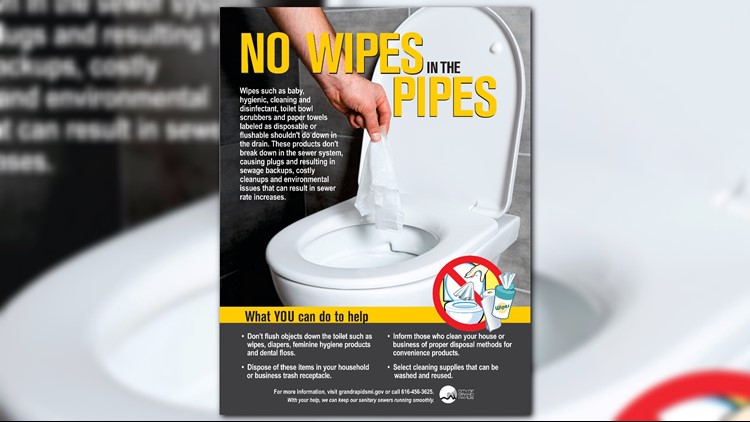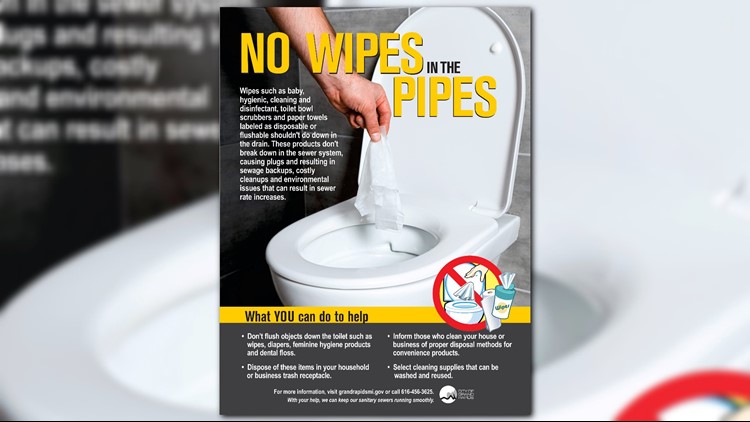It could be tempting to flush nearly alternatives down the toilet, especially if toilet paper isn’t readily available. But during the Coronavirus outbreak, plumbers, and officials at the Kent County Water Resource Recovery Facility, are saying, “don’t do it.”
With the fear of the disease spreading, and toilet paper shelves becoming bare in stores, it’s good to know what we can and can’t flush.
“You see a lot of things over 36 years if plumbing,” said Kevin Ketelaar, who owns Den Ketelaar Plumbing Inc., in Comstock Park, Mi. “We’ve even taken a couple cell phones out of toilets.”
Ketelaar is expecting business to pick up as the outbreak continues because people may not have toilet paper and will be forced to use whatever’s available.
“I’ve never seen anything like this before, especially with the hoarding of toilet paper,” said Ketelaar. “Don’t use disposable wipes. Those don’t dissolve and get hung up on anything that is obstructing your pipes and wreak havoc on your septic systems.”
Officials at the Kent County Water Resource Facility in Grand Rapids are also concerned.

The Kent County Water Resource Recovery Facility is reminding everybody of their “No Wipes in the Pipes’ campaign during the COVID-19 outbreak. Kent County Water Resource Recovery Facility
“As you seek alternate resources in that regard, we just ask that no wipes or those types of products go into the sanitary system,” said Nicole Pasch, who is the Kent County Water Resource Facility assistant environmental services manager.
Pasch says along with wet wipes, diapers, hygiene products, dental floss, paper towels and cotton balls and among the items people should toss in the trash, not flush.
“We try to stick to the three ‘P’s’,” said Pasch. “We call it paper, pee and poop.”
If inorganic products make it all the way to the Water Resource Facility, Pasch says the pumps get clogged with them, making it harder to biologically treat the wastewater.
“We are all users of the sanitary system,” added Pasch. “We all pay rates, so it becomes all of our problem, really, and we need to think about it like that.
“Save us a step; save us a risk, and just send those inorganic items to the trash right away. In the end, we’re able to disinfect and send the water to the [Grand] river.”
Learn more by watching this quick video:
This article appeared in WZZM 13. Read more here.

